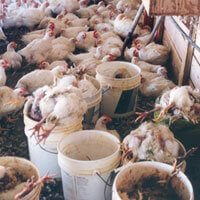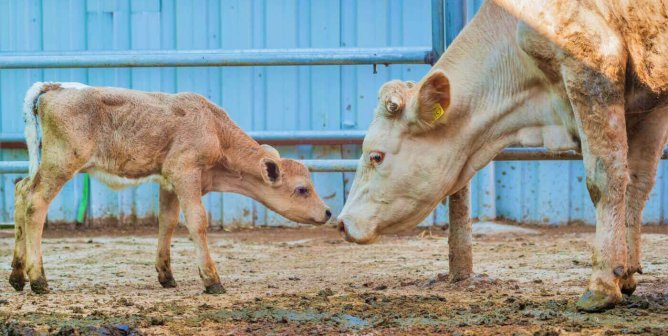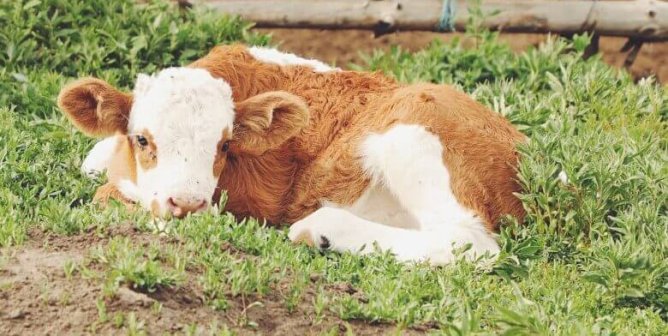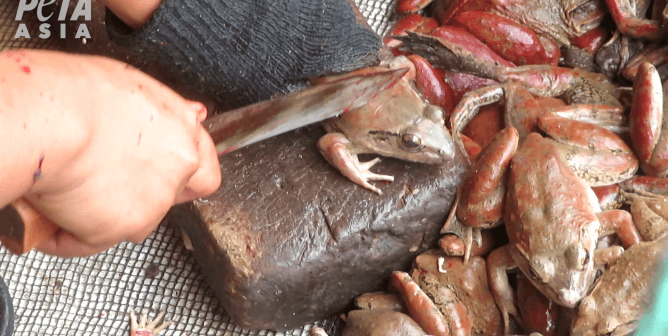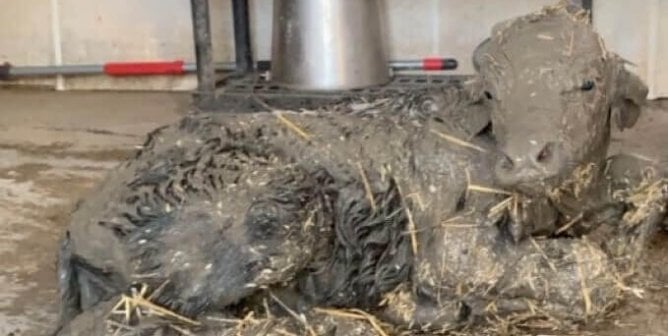Animals Used for Free-Range and Organic Meat
“If you go to a free-range farm and expect to see a bunch of chickens galloping around in pastures, you’re kidding yourself.”—Richard Lobb, spokesperson for the National Chicken Council
Cage-Free and Free-Range Chickens Used for Eggs
Many consumers believe that labels such as free-range, free-roaming, or cage-free mean that chickens spend their days in natural outdoor settings, but the label means something entirely different to the egg industry.
Hens on large-scale commercial cage-free farms are not kept in cages as the birds on standard egg factory farms are, but the difference usually stops there. Most still have their sensitive beaks cut off with a hot blade and are crammed together in filthy sheds. They never go outside, breathe fresh air, feel the sun on their backs, or do anything else that is natural or important to them.
They suffer from the same lung lesions and ammonia burns as hens in cages, as well as breast blisters from sitting on urine- and feces-covered floors. Male chicks are often ground up alive or left to suffocate because they don’t lay eggs and are considered too small a breed to be profitably used for meat.
While free-range and organic egg farms are technically supposed to give birds outdoor access, the U.S. Department of Agriculture (USDA) has decided that “they may be temporarily confined” for “reasons of health, safety, the animal’s stage of production or to protect soil or water quality.” Many free-range egg farms take full advantage of this loophole by almost never allowing the birds outside.
According to Scott Akom, formerly the general manager of a Horizon Foods farm, “Free-roaming and cage-free mean the same thing. The chickens are free to go wherever they want. Inside the chicken house.” When birds are given outdoor access, it’s often for very short periods of time, and the outdoor area often just consists of a hole cut in the shed wall leading to a small, muddy enclosure.
Cage-free farms are an improvement over the unmitigated hell of the regular egg industry (just imagine a cat or dog living in a tiny cage for two years with five to six other cats or dogs and never leaving that cage until it’s time for slaughter). But buying cage-free eggs from virtually any company still supports massive suffering and death.
The Egg Industry’s History of Deceiving Consumers
In response to increased consumer awareness of the horrors of egg factory farms, United Egg Producers (UEP), the industry’s main trade organization, started putting “Animal Care Certified” labels on egg cartons.
This meaningless “certification” still permitted all the worst abuses, including allowing factory farmers to cut off hens’ sensitive beaks with a hot blade, cram six or seven hens into tiny battery cages where they can’t spread even one wing, and house them in filthy sheds with more than 100,000 other birds.
Compassion Over Killing, a Washington, D.C.-based animal rights group, successfully used legal action to force United Egg Producers to remove the “Animal Care Certified” label. Instead of treating hens better, however, the UEP has now begun using a new misleading label that reads, “United Egg Producers Certified: Produced in Compliance With United Egg Producers’ Animal Husbandry Guidelines.” This label still permits the exact same horrible treatment of hens.
Free-Range Chickens
Like free-range chickens kept for their eggs, many free-range chickens raised for meat never spend any time outside. The U.S. Department of Agriculture requires that free-range chickens used for meat have access to the outdoors, but many never make it outside because they’ve been bred and drugged to grow so obese that they can hardly move.
Washington State University farm expert Terry Swagerty confirms that most free-range chickens never go outside because, he says, “They’re not bred for mobility. They’re bred for hogging down food.” Richard Lobb, spokesperson for the National Chicken Council, explains in a rare moment of candor, “If you go to a free-range farm and expect to see a bunch of chickens galloping around in pastures, you’re kidding yourself.”
Free-Range Turkeys
Free-range turkeys are generally not treated any better than turkeys raised on factory farms. Like chickens, their “outdoor access” might merely be a hole in their shed that goes out to a tiny, fenced-in mud lot. Plus, also like chickens, many free-range turkeys have been bred and drugged to grow so large that walking is painful or impossible.
A recent investigation into free-range turkey farms found that turkeys on these farms spend nearly all their time inside extremely crowded, filthy sheds in which the air is so heavy with ammonia that it hurts to breathe, and the birds are bred to grow so obese that they become crippled. The dead are left to rot among the survivors. According to turkey farmer Mary Pitman, “Consumers can really be fooled. Some farms can qualify for free range, but they raise [turkeys] in the same conditions as industrial farms.”
The Swine Welfare Assurance Program
Like the United Egg Producers’ “Animal Care Certified” label on eggs, the National Pork Producers Council’s Swine Welfare Assurance Program (SWAP) label is a complete farce.
SWAP allows factory farmers to cut pigs’ testicles from their scrotums, use the equivalent of a hole punch to mutilate their ears, and chop off their tails, all without any painkillers. SWAP also allows factory farmers to cram mother pigs into filthy crates so small that they can’t even turn around, to dose the animals with so many drugs that many become crippled, and to kill sick pigs using blunt trauma (i.e., cracking their heads against the concrete floor), gunshot, and electrocution.
The best way to help all animals is to stop eating meat and other animal-derived products. Take PETA’s Pledge to Be Vegan for 30 Days, and we’ll send you all the tips and recipes you need to try an animal-friendly diet.
